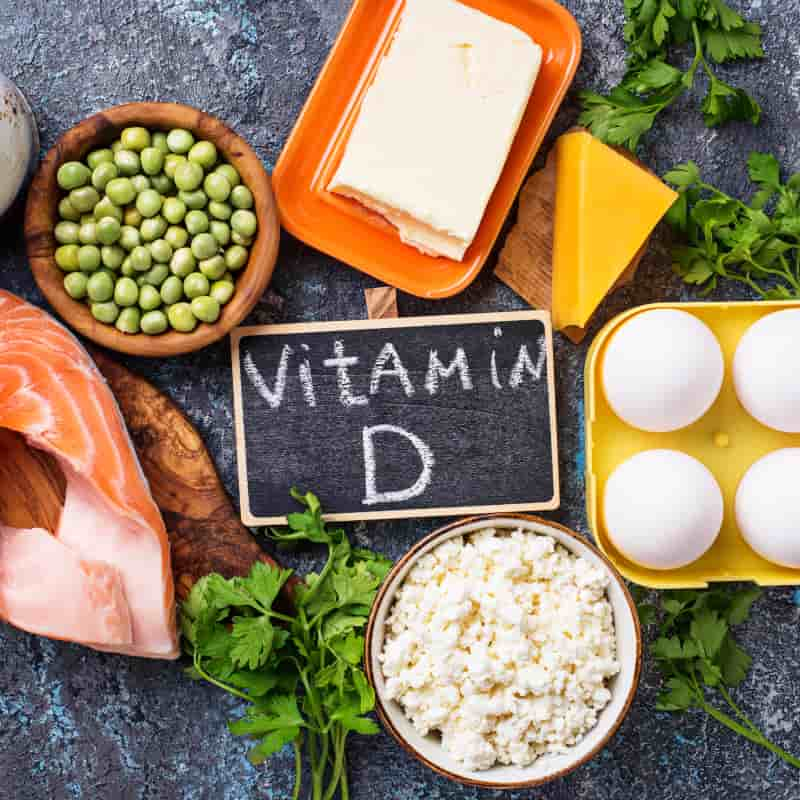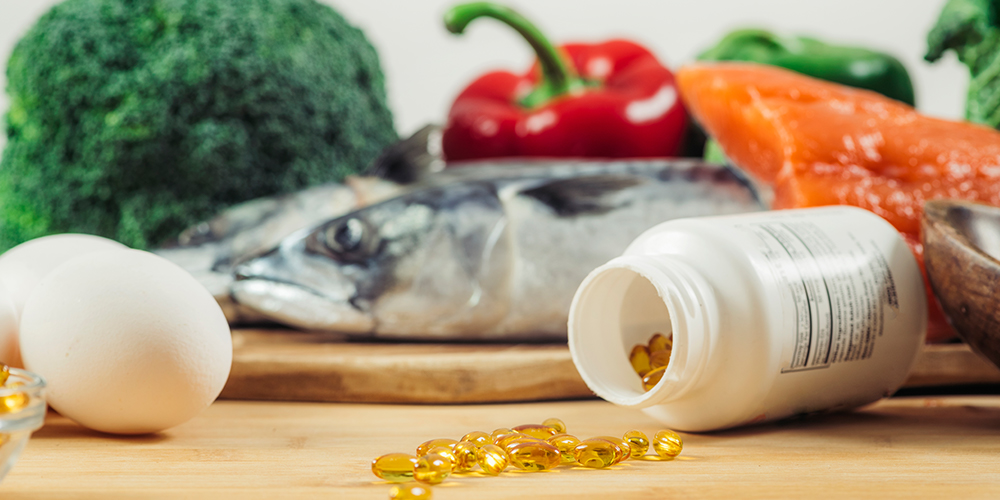
What do we know about Vitamin D?
We have all heard of vitamin D, but what do we really know? Firstly, let’s talk about what vitamin D does for our bodies. The main benefit is the regulation of other substances such as calcium and phosphorus. These are needed for healthy bones, teeth, and muscles.[1]
Low amounts of vitamin D can lead to bone problems. Firstly, rickets in children, meaning weak and softening bones at risk of bowing [2]. Secondly, Osteomalacia (softening of the bones) can be common in women and occur after pregnancy [3]. Thirdly, Osteoporosis in the elderly is a disease which causes bones to become brittle and weak [4].
Therefore, keeping adequate levels is important for health at any age! This is especially important during the winter months. Did you know one of the main ways to get vitamin D into the body is the sun? However, this can be problematic if you live somewhere where the sun rarely comes out. Over 50% of the world’s population may not get enough sunlight [5]. Other health issues that can get worse in winter include asthma, high blood pressure, and cold sores.
How to make sure you get enough, you ask? Don’t worry if you live in a country with not very much sunlight! We have made a list of some alternative sources of vitamin D, our list includes both food and supplements. So, no matter where you are in the world getting vitamin D won’t be a problem for you!
You can find out more about staying healthy in winter here.

Covid 19 and Vitamin D
Many studies have shown that vitamin D can protect against respiratory infections [6] [7]. Also, individuals with sufficient levels of vitamin D were the most protected. Therefore, it became an area of interest in the fight against Covid-19. So why is this so important? Well, this is just a glimpse of some of the research going on during this time. We are all still learning about Covid-19. But, it looks like vitamin D could provide some insight into preventing this disease. Other conditions that have been shown to be connected to covid include acid reflux and erectile dysfunction.
Sources of Vitamin D
Here are some key ways you can include Vitamin D in your diet. You can also find out more about great immune boosting foods here!
Meat sources
First up, we have meat sources! Animal sources are a great way of getting vitamin D in the diet, foods like red meat, liver and oily fish (such as salmon, sardines, herring and mackerel) are rich in vitamin D! [9]
Vegetarian sources
We know one size does not fit all. With 8% of the world being vegetarian we have made a list of food high in vitamin D but also vegetarian friendly. While many vitamin D rich foods come from meat there are also many vegetarian-friendly sources. Some of which include butter, yogurt, cheese and egg yolks. [3]
Vegan sources
Are you only interested in plant-based foods? The only plant-based source of vitamin D (excluding fortified foods) are mushrooms, which are an excellent source of vitamin D. We suggest anyone who is adhering to a vegan/plant-based diet should look to include them in their meals [1]. When it comes to fortified foods there are many which have vitamin D! Such as fortified soy, almond and rice milks, fortified cereals and fortified orange juice. [1]
Find out more about which supplements are useful to have in a plant-based diet, as well as how to know if your medication is vegan.
Can I get Vitamin D through supplements?
What happens if you can’t get enough vitamin D from your diet? Don’t worry, there are always supplements which can help you reach your requirements. There are supplements that can be taken orally, like a tablet. Or supplements which can be taken intravenously like a drip or injection [1].
Vitamin D Tablets
During the months between October and the end of March, it is often advisable to take a daily supplement of vitamin D. These supplement tablets could be a basic multivitamin or often a cod liver oil supplement can be taken to boost your levels. [1] You can buy Vitamin D supplements online from e-Surgery, simply use our free Ask-a-Pharmacist service if you have any questions.
Intravenous (IV) Vitamin D
As we previously mentioned, oral supplements are an option when looking to get vitamins from a non-food source. Other options include vitamin drips or shots. Vitamin drips and shots are optimal when looking to gain the most value when a vitamin is given through an IV. A vitamin is limited to how much can be absorbed when taking it orally (can be as low as 50%). Whereas, a vitamin given through an IV has a much higher absorption rate (as much as 90%). [8] You can find Vitamin D IV drips online from Get a Drip.
In conclusion, vitamin D can’t offer protection to us from coronavirus or the flu, but it will help not only your bones, teeth and muscles but will also keep your immune system healthy.
So, whether it be from food, or supplements be sure to get your vitamins in!
Sources
- 7 Healthy Foods That Are High in Vitamin D | Healthline
- Rickets Overview | Mayo Clinic
- Vitamin D | NHS
- Osteoporosis | Mayo Clinic
- Vitamin D deficiency: A single centre analysis of patients from 136 countries | Pubmed
- Vitamin D supplementation to prevent acute respiratory tract infections | BMJ
- Vitamin D supplementation to prevent asthma exacerbations | The Lancet
- IV Vitamin Therapy: Your Questions Answered | Healthline
Further Reading
- Vitamin D | NHS
- Vitamin D supplements and how to take the safely | GOV UK
- How to get vitamin D from sunlight | NHS







